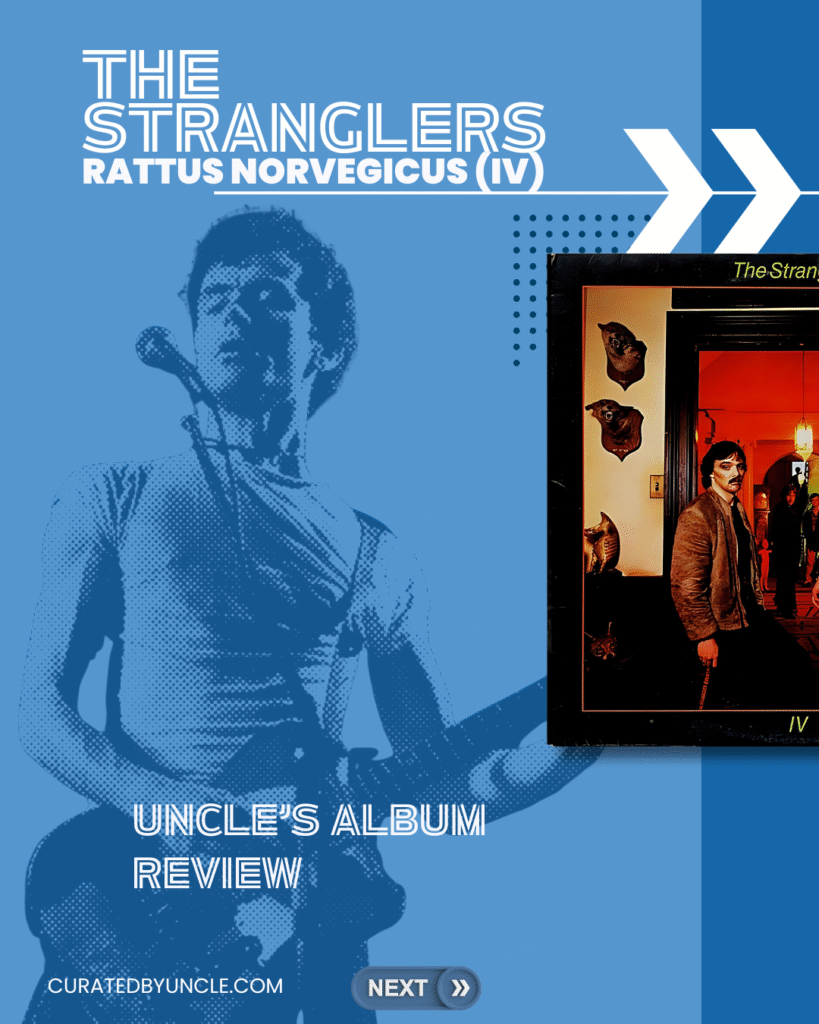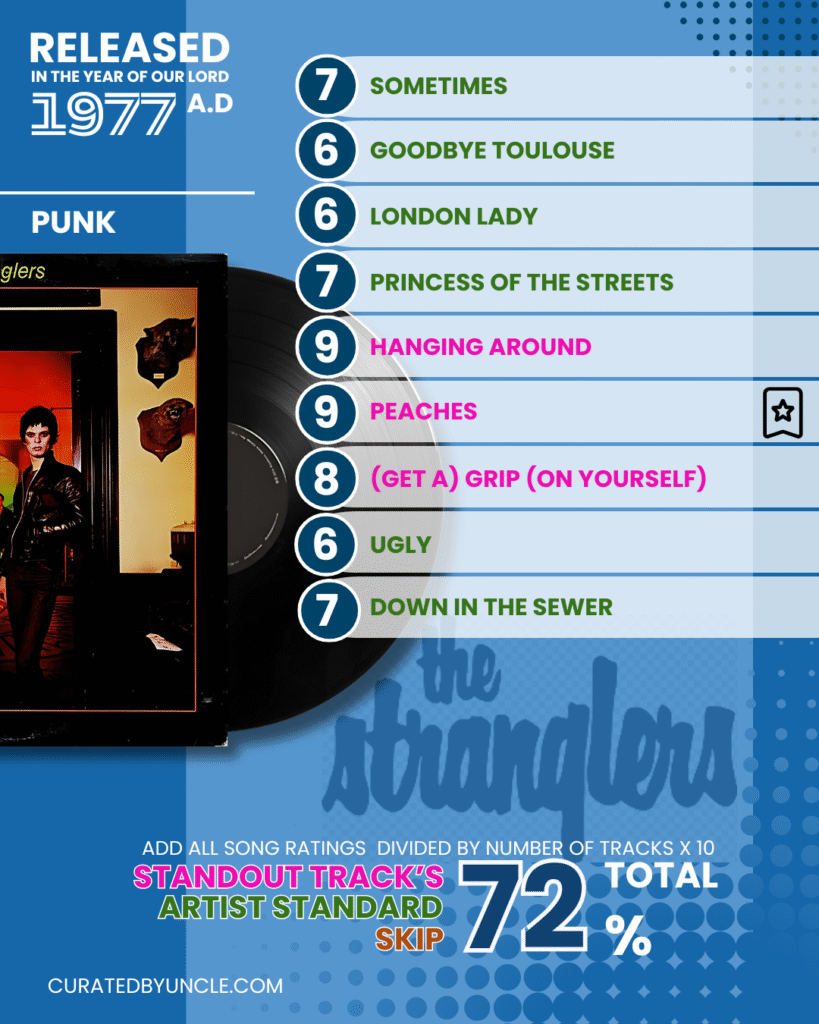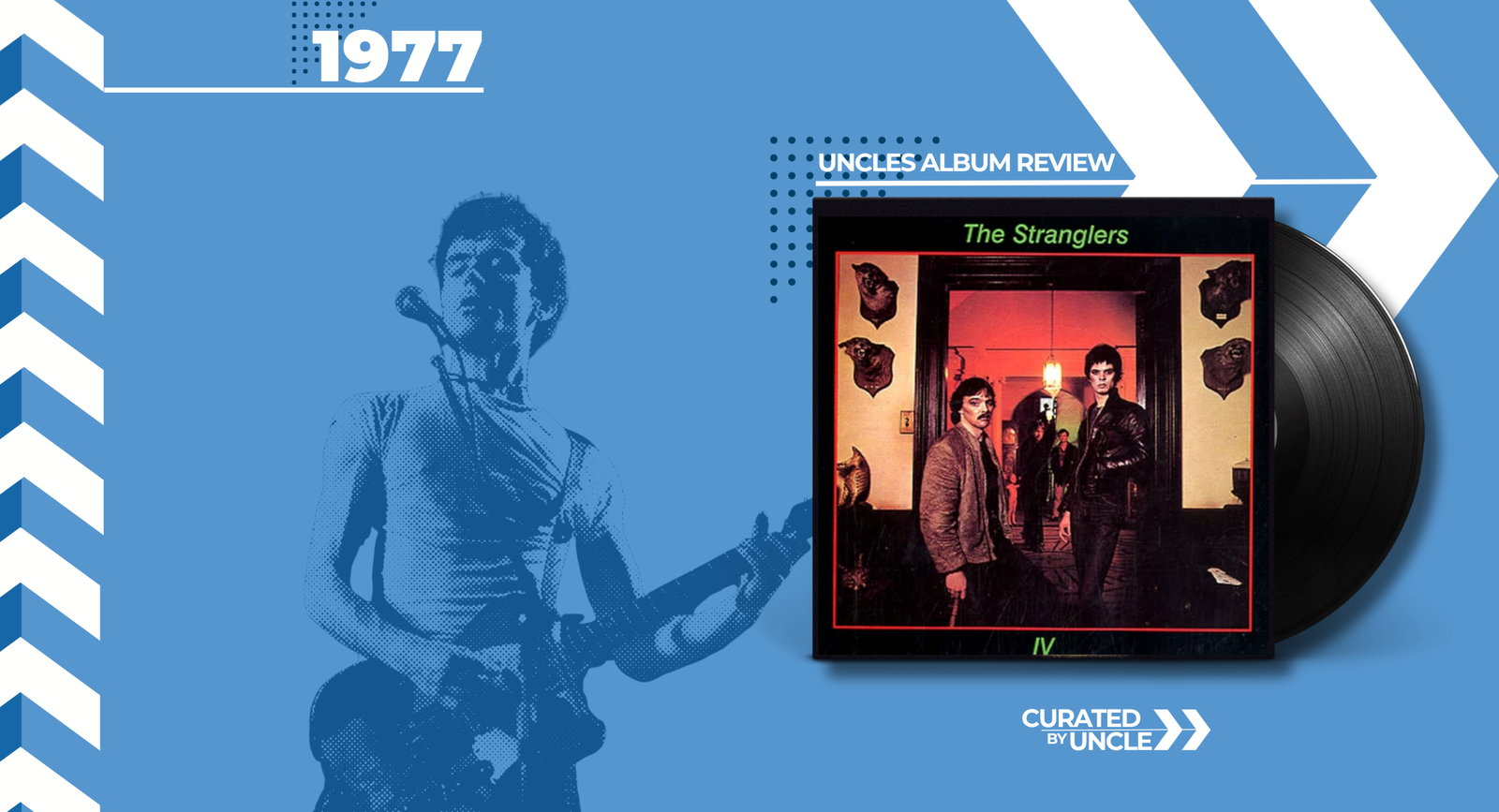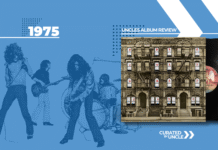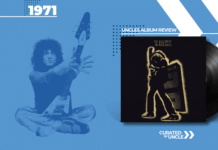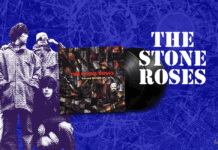Welcome to the Sewer
Ah, 1977. The Sex Pistols were swearing on TV, The Clash were scribbling manifestos, and The Damned were already drunk. Into this circus of spittle and safety pins crawled The Stranglers with their debut Rattus Norvegicus, an album as subtle as a brick lobbed at your face.
Rattus Norvegicus wasn’t your typical scrappy punk debut. The Stranglers weren’t fresh-faced kids from the dole queue. They were older, nastier, and knew how to play their instruments, which immediately set them apart. Imagine four slightly terrifying blokes turning up to your local, stealing your pint, insulting your mum, and then playing a set that made you wonder if punk might actually be dangerous after all.
I remember first hearing “Peaches” on a late-night radio station, and feeling like I needed a shower afterwards. It was lecherous, uncomfortable, but oddly magnetic-like watching a car crash conducted by a bass guitar.
Table of Contents
Who’s in the Sewer Rats?
- Hugh Cornwell – vocals, guitar, sarcasm personified
- Jean-Jacques Burnel – bass, vocals, the scariest man in punk with the best basslines
- Dave Greenfield – keyboards, vocals, a prog refugee playing cathedral organ in a dive bar
- Jet Black – drums, aged 39, proving punk wasn’t just for teenagers with glue in their hair
Not exactly the Sex Pistols, is it? They looked more like your local debt collectors than rock stars. But somehow, that made them more menacing.
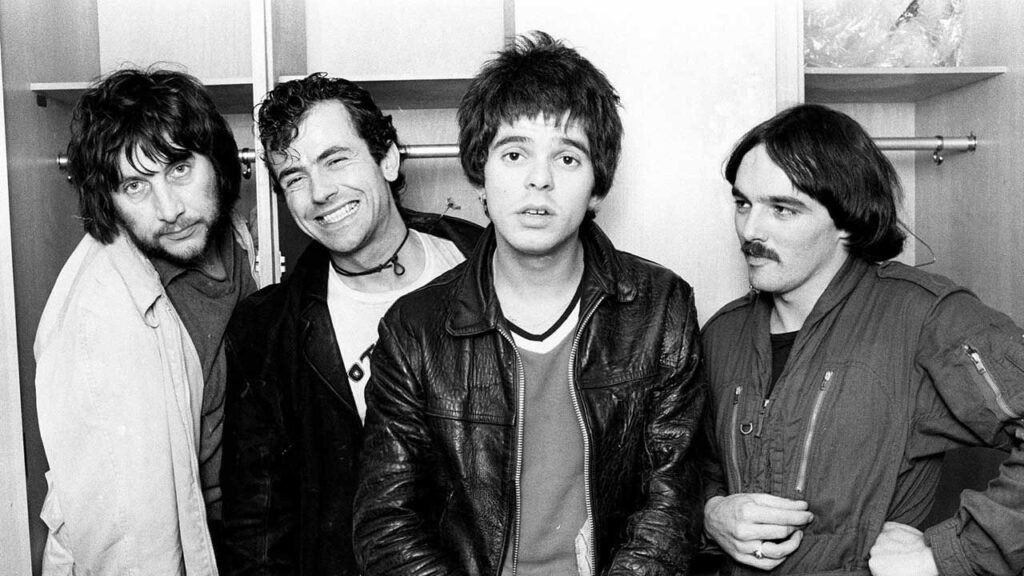
Themes: Sleaze, Snarl and Survival
While many punk albums screamed about boredom and anarchy, Rattus Norvegicus wallowed in sleaze, paranoia, and urban grime. This wasn’t rebellion for the sake of fashion, it was the sound of men who’d seen too much, lived too much, and decided to channel it into something dark and twisted.
It’s punk, yes, but it’s punk with a sneer, a middle finger, and a jazz chord thrown in for good measure.
Track by Track: Rat Bites and Sewer Serenades
1. Sometimes
Rattus Norvegicus kicks off with a punch to the throat. Cornwell’s sneering vocal delivery feels like an argument in a pub car park-equal parts menace and mockery. Burnel’s bass growls while Greenfield’s keyboards swirl like a carnival from hell. It’s angry, but also weirdly sophisticated. Punk wasn’t supposed to sound this tight, which is exactly why it works.
2. Goodbye Toulouse
Punk and Nostradamus: two things you didn’t think belonged together. This song is about the French city being destroyed in an earthquake, because why not? It’s unsettling and atmospheric, built on eerie keys and a creeping bassline. Not your standard “no future” rant—this was apocalyptic storytelling. I always thought it sounded like a horror film set to music.
3. London Lady
A venomous character assassination, delivered with a smirk. Cornwell’s lyrics drip with disdain while the band hurtles forward like a bar fight in progress. It’s mean-spirited, borderline misogynistic, and yet musically irresistible. Punk was supposed to shock, and this track does it by being nastier than almost anything else on the scene. The groove, though? Utter filth, in the best way.
4. Princess of the Streets
Here Burnel takes the mic, growling his way through a slow, slinky bass-driven dirge. It’s not punk in the conventional sense-more like a sleazy cabaret act that wandered into the wrong club. Greenfield’s keys slither in the background, turning it into something almost decadent. It feels like the Stranglers staring punk in the face and saying: “We can do weird, too.”
5. Hanging Around
One of the album’s highlights and an early anthem. This is the Stranglers at their most infectious: a relentless bassline, sneering vocals, and a chorus that practically demands you shout along while spilling beer. It’s got all the cynicism of punk but delivered with hooks sharp enough to draw blood. I’ve always thought this was the point where they proved they weren’t a novelty, they were a real force.
6. Peaches
Infamous, lecherous, and banned by the BBC for being “indecent.” Which, of course, guaranteed it was a hit. Burnel’s bassline struts down the seafront like a predator, while Cornwell delivers the creepiest beach commentary in rock history. It’s uncomfortable, yes-but unforgettable. To me, “Peaches” is the Stranglers in microcosm: sleazy, offensive, and musically brilliant.
7. (Get a) Grip (On Yourself)
A surprisingly upbeat slice of pub-punk optimism-well, Stranglers-style optimism, which still involves sneering and aggression. It’s almost cheerful, with Greenfield’s keyboards adding unexpected brightness. The chorus is catchy enough to fool you into thinking they actually meant it. I’ve always liked this one because it shows that even sewer rats can occasionally crack a grin.
8. Ugly
Slow, menacing, and dripping with contempt. Cornwell’s vocal delivery borders on psychotic, while Greenfield’s organ turns the whole thing into a demented fairground ride. It’s creepy, unpleasant, and that’s precisely the point. Punk wasn’t about being nice, it was about making you uncomfortable. “Ugly” does that in spades. Listening to it feels like staring into someone’s dead eyes across a smoky bar.
9. Down in the Sewer
Closing Rattus Norvegicus with a six-part, ten-minute prog-punk epic. Yes, you read that right: prog-punk. It shouldn’t work, but it does. Shifting moods, extended solos, and lyrical imagery about rats thriving underground—it’s bizarre, ambitious, and utterly brilliant. I remember thinking, the first time I heard it, that this was like Pink Floyd if they’d been mugged on their way to rehearsal.
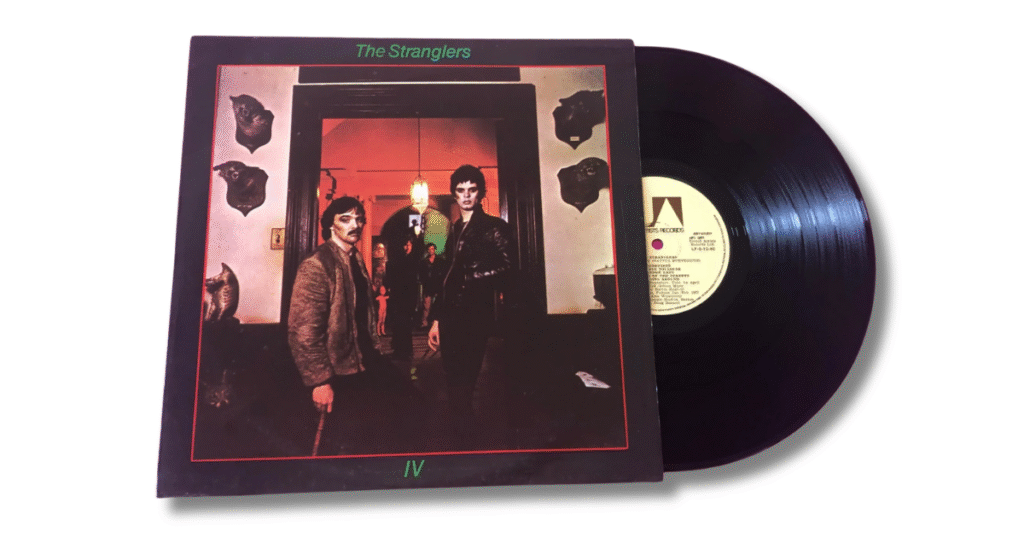
Artwork: Vermin Chic
The cover shows a rat perched smugly at a table. It’s not glamorous, it’s not revolutionary, it’s just filthy. And yet it’s perfect. Because that’s exactly what the Stranglers were: a band thriving in the shadows, scavenging from punk, prog, and pub rock, and turning it into something uniquely grotesque and brilliant.
The message? We’re not here to look pretty. We’re here to gnaw at your nerves.
Production: Punk With Teeth
Recorded at TW Studios in Fulham and produced by Martin Rushent, Rattus Norvegicus was punk that sounded suspiciously… competent. While many punk bands thrived on chaos and sloppiness, the Stranglers injected baroque keyboard flourishes, violent bass runs, and strange song structures. It’s as if they got the punk memo but scribbled obscenities all over it.
This wasn’t the spit-and-hope-for-the-best sound of Never Mind the Bollocks. It was lean, muscular, and tightly coiled, like a rat waiting to bite your ankle.
Trivia: Sewer Secrets
- The title is the Latin name for the common sewer rat.
- “Peaches” was banned by the BBC but still became a hit.
- Jet Black was nearly 40 when the album dropped—punk’s granddad.
- Eric Clapton apparently turned up at a gig to see what the fuss was about. He left confused.
- The album was originally going to be called Dead on Arrival.
Legacy: Rats Rule the Streets
The album reached #4 in the UK charts, proof that the public had an appetite for menace. Critics were divided: some dismissed it as misogynistic filth, others hailed it as punk’s first big step forward. Either way, The Stranglers carved out a unique niche. Too musical for pure punk, too filthy for polite society.
Decades later, Rattus Norvegicus still sounds sharp, dangerous, and unsettling. It hasn’t aged so much as fermented, like a bottle of something toxic that only gets more potent with time.
My Final Thoughts: Vermin With Style
I think Rattus Norvegicus is a masterpiece of filth. It’s not comfortable, it’s not pretty, and it’s definitely not polite. But it’s brilliant. Where other punk bands flamed out with one-note thrashing, The Stranglers injected sophistication without losing their venom.
To me, it feels like the most honest of the early punk debuts-not a movement, not a manifesto, but a record made by four men who wanted to unsettle, shock, and maybe start a fight. And it still works.
If punk was supposed to be raw energy, then Rattus Norvegicus proved it could also be intelligent, nasty, and unashamedly weird. It’s a record that doesn’t ask for your respect-it demands it, while rifling through your pockets.

If You Liked Rattus Norvegicus, I Recommend These
- Sex Pistols – Never Mind the Bollocks (1977): The chaos blueprint.
- The Damned – Damned Damned Damned (1977): Punk with humour and hooks.
- The Clash – The Clash (1977): Political fire set to ragged brilliance.
